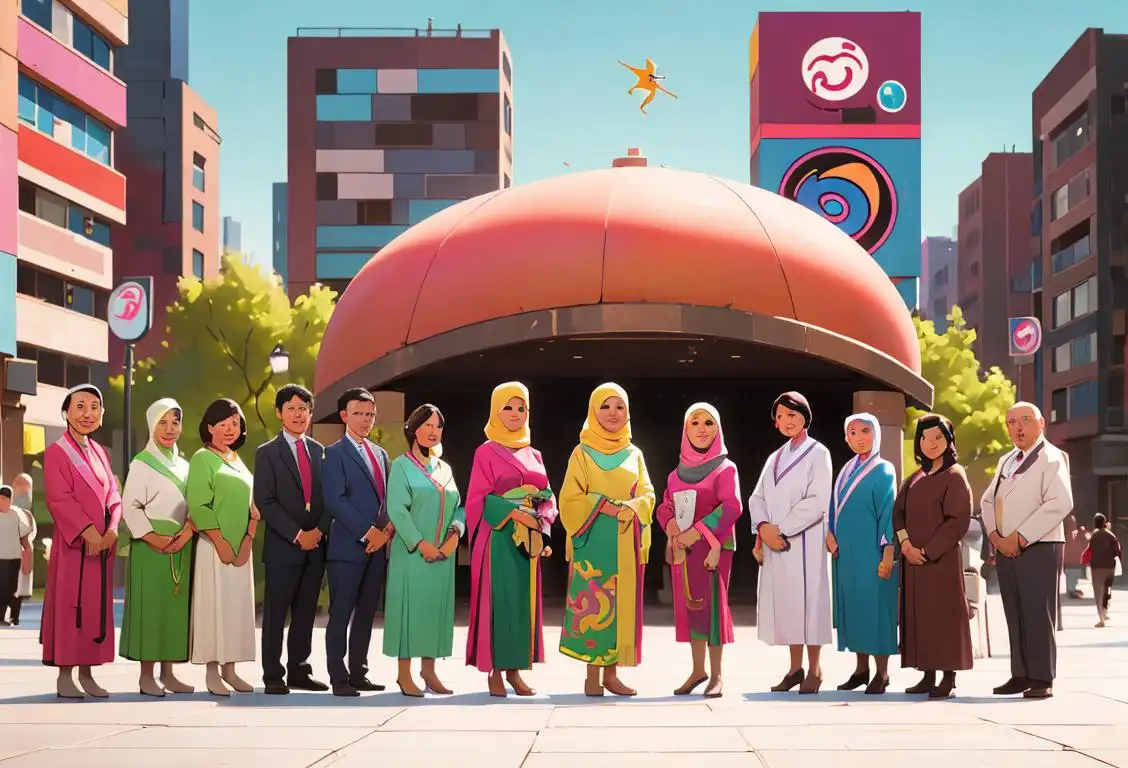National Minority Donor Awareness Day

Welcome to WhatNationalDayIsIt.com! Today we're diving into the fascinating world of National Minority Donor Awareness Day. Prepare for an enlightening journey filled with heartwarming stories, important facts, and a touch of humor.
When is Minority Donor Awareness Day?
It's national minority donor awareness day on the 1st August.
The History of National Minority Donor Awareness Day
Every year on this special day, we come together to raise awareness about the importance of minority donors in the realm of organ transplantation. The history of National Minority Donor Awareness Day can be traced back to the tireless efforts of dedicated individuals in the medical community.
In the early days of organ transplantation, it became evident that there was a significant shortage of suitable donors from minority communities. It was not due to a lack of willingness to donate organs, but rather a lack of representation and education. Many potential donors were unaware of the life-saving opportunity they possessed, while others hesitated due to cultural or religious beliefs.
Recognizing the urgent need to bridge this gap, a group of passionate doctors, patients, and activists joined forces and founded National Minority Donor Awareness Day. Their mission was clear: to raise awareness, provide education, and inspire individuals from minority backgrounds to become organ donors.
How to Celebrate
On National Minority Donor Awareness Day, there are many ways you can get involved and show your support. Consider:
- Sharing information on social media platforms using the hashtag #MinorityDonorAwarenessDay.
- Organizing or participating in local events that promote organ donation and raise awareness within minority communities.
- Engaging in conversations with friends and loved ones about the importance of organ donation and dispelling any myths or misconceptions.
- Signing up as an organ donor and encouraging others to do the same.
Remember, small actions can have a big impact. By spreading the word and initiating discussions, you can help save lives.
Did You Know?
Did you know that the first successful organ transplant between unrelated individuals took place in 1954? It was a kidney transplant performed by a team of doctors led by Dr. Joseph Murray and Dr. John Merrill. This groundbreaking medical achievement paved the way for the life-saving procedures we have today.
History behind the term 'Minority Donor Awareness'
1984
The Emergence of Directed Blood Donations
In 1984, the concept of directed blood donations started to gain recognition. Directed blood donations allow individuals to specifically request a certain blood type for their transfusions, encouraging potential donors to become more aware of their blood type. This marked the beginning of focused efforts to raise awareness about the importance of matching blood types between donors and recipients.
1997
The Ongoing Need for Minority Donors
By 1997, it became evident that there was a significant need for minority donors. It was discovered that patients from ethnic minority backgrounds faced difficulties in finding compatible blood matches due to the lack of diversity in the donor pool. This realization sparked an increased focus on promoting minority donor awareness and encouraging individuals from all backgrounds to donate blood.
2001
Establishment of National Minority Donor Awareness Week
In 2001, National Minority Donor Awareness Week was established. This annual observance takes place in August and serves as a platform to raise awareness about the need for minority donors. The aim is to educate the public, particularly those from minority communities, about the importance of blood and organ donations. Various events and initiatives are organized during this week to encourage individuals to become minority donors.
2004
Expansion of Minority Organ Transplant Education
In 2004, the focus on minority donor awareness expanded beyond blood donations to include organ transplants. The Minority Organ and Tissue Transplant Education Program (MOTTEP) was launched to address the severe disparities in access to organ transplantation within minority communities. MOTTEP aims to educate individuals about organ donation, dispel myths and misconceptions, and increase the number of minority organ donors.
2014
Recognition of Minority Organ Transplant Month
In 2014, Minority Organ Transplant Month was officially recognized. Taking place in August, this month-long observance reinforces the importance of organ donation within minority communities. It serves as a reminder for individuals to register as organ donors and discuss their wishes with their families. During this month, hospitals, community organizations, and individuals come together to promote minority organ donor awareness and facilitate conversations about the life-saving impact of organ transplantation.
Did you know?
Did you know that the first successful organ transplant between unrelated individuals took place in 1954?Tagged
awareness fun loved ones finance medicalFirst identified
1st August 2017Most mentioned on
1st August 2018Total mentions
30Other days
Minority Donor Awareness Day
Action Day
Happiness Day
Opposite Day
Veterans Day
Seniors Day
One Day
Bison Day
Suicide Prevention Month Day
Awareness Day








